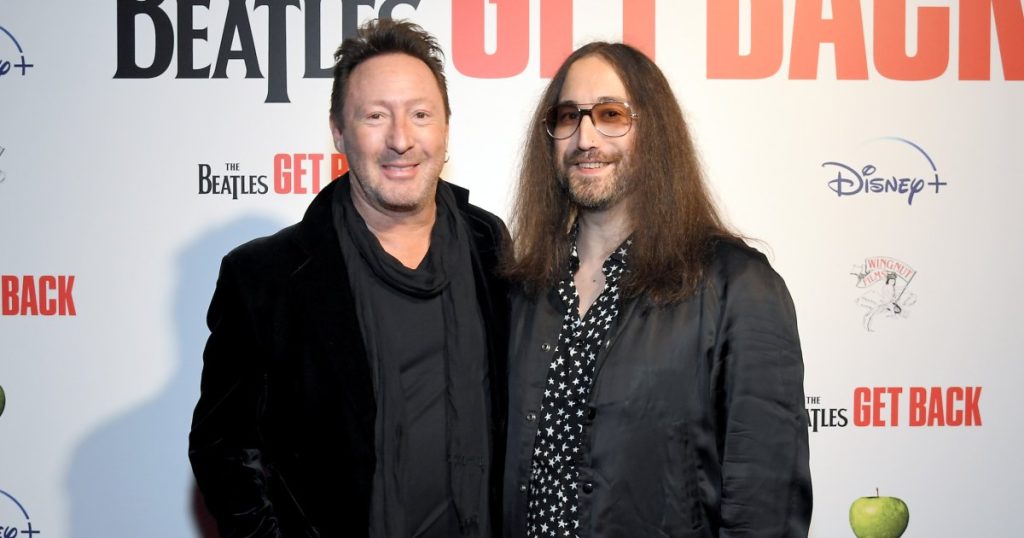John Lennon’s life, though tragically cut short at the age of 40, was a complex tapestry woven with musical genius, personal struggles, and evolving familial relationships. His turbulent childhood, marked by the absence of his father, Alfred Lennon, and the unconventional parenting arrangement with his aunt Mimi Smith, profoundly shaped his personality and future interactions. This early instability set the stage for his own sometimes challenging journey through fatherhood, a journey marked by contrasting approaches with his two sons, Julian and Sean.
Julian Lennon, born from John’s youthful marriage to Cynthia Powell, experienced a fatherhood characterized by distance and emotional detachment. The whirlwind of Beatlemania and John’s subsequent relationship with Yoko Ono created a gulf between father and son. Julian’s childhood memories were tinged with the feeling of abandonment as he witnessed his father’s public embrace of a new life, seemingly leaving him and his mother behind. Though resentment and anger understandably lingered, Julian and John eventually managed to forge a reconnection in the years leading up to John’s death, a period marked by a renewed appreciation for their bond.
In contrast, Sean Ono Lennon, John’s son with Yoko Ono, experienced a vastly different paternal figure. John, having stepped back from the music industry, embraced the role of house husband, dedicating himself to Sean’s upbringing. This period witnessed a transformation in John, a shift away from the public persona and towards a more domestic, nurturing role. Sean’s early memories are filled with the presence of his father, a stark contrast to Julian’s experience. However, the idyllic period of family life was shattered by John’s tragic assassination, leaving Sean to grapple with the immense loss at a young age. The trauma profoundly impacted Sean, etching his early memories with an indelible clarity, a constant reminder of the father he lost too soon.
The complexities of John’s own upbringing undoubtedly played a role in shaping his approach to fatherhood. His mother, Julia Lennon, though present in his early years, ultimately entrusted his upbringing to her sister, Mimi Smith. This separation, though perhaps well-intentioned, undoubtedly left its mark on John. The tragic loss of Julia in a car accident during John’s teenage years further compounded his emotional wounds, deepening a sense of loss and contributing to the “chip on his shoulder” he carried. While his relationship with his father, Alfred, remained largely estranged throughout his life, a late-stage reconciliation offered a semblance of closure before Alfred’s passing.
The contrasting relationships John maintained with his sons, Julian and Sean, reflect not only the changing circumstances of his life but also his own personal evolution. With Julian, he represented the young, somewhat unprepared father caught in the whirlwind of fame and personal turmoil. With Sean, he embodied a more mature, reflective individual, actively choosing to prioritize family and embrace the joys of fatherhood. While the circumstances surrounding each relationship differed significantly, they both ultimately underscore the enduring impact of parental figures, both present and absent, in shaping the lives of their children.
Despite the emotional complexities and sometimes challenging dynamics that characterized John Lennon’s familial relationships, the enduring love and connection between him and his sons, and the eventual reconciliation with his own parents, form a poignant backdrop to his extraordinary life. The legacy of his music and the intimate glimpses into his personal life continue to fascinate and resonate, offering a multifaceted portrait of a man grappling with the complexities of fame, family, and his own internal struggles. While his life was tragically cut short, the impact he had on his family and the world at large remains undeniable.

